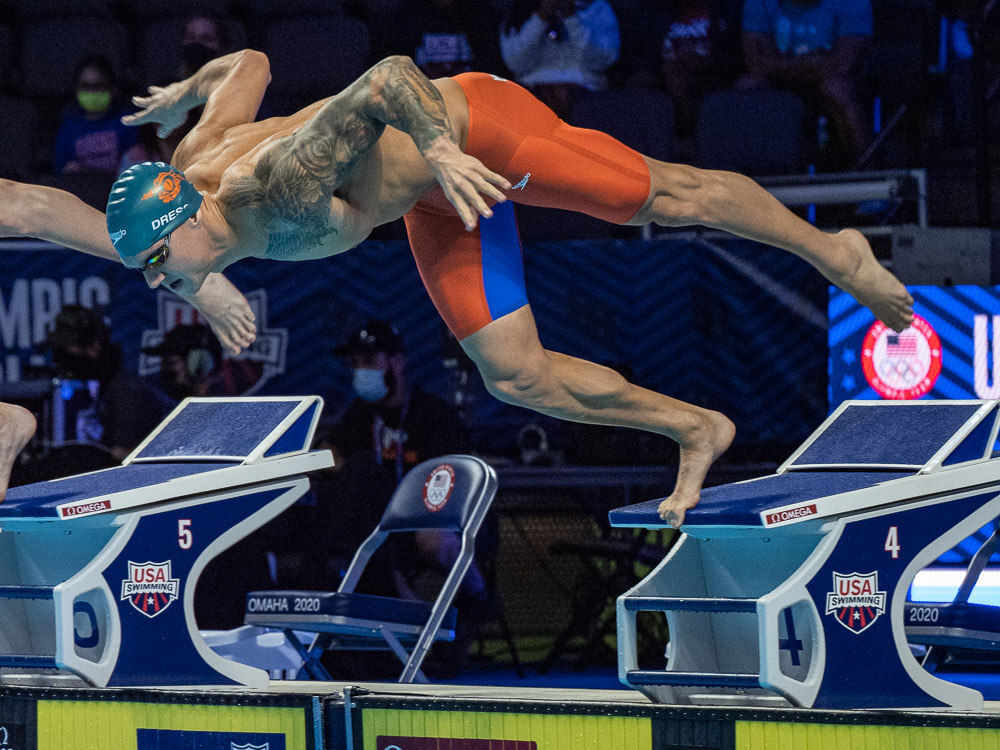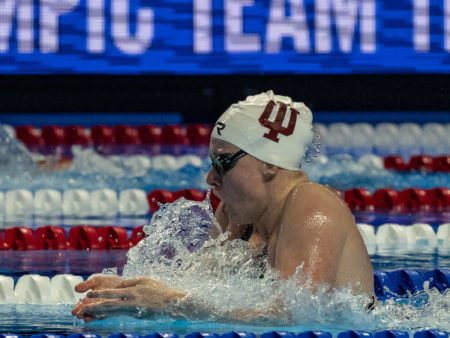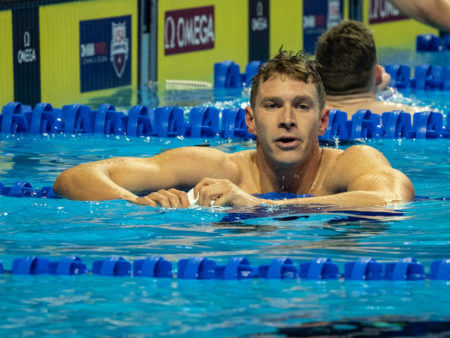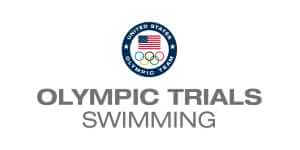Challenges Await, But American Medley Relays Look Solid Heading Into Tokyo

Challenges Await, But American Medley Relays Look Solid Heading Into Tokyo
Most of the news out of Omaha on the relay front was less than promising for the Americans. The women’s freestyle relays are in much worse position than expected after no one broke 53.5 in the 100 free and only Katie Ledecky was under 1:56 in the 200 free (compared to some huge swims out of Australia a few days earlier). While the men’s 400 free relay looks like a co-favorite along with Russia, the U.S. men’s 800 free relay could have a challenge just to get on the podium in Tokyo.
But the American women’s and men’s 400 medley relays look to be in strong position, even without swimmers recording their best performances in some events at the Olympic Trials.

Lilly King should provide a big advantage for the U.S. on the breaststroke leg of the women’s 400 medley relay in Tokyo — Photo Courtesy: Peter H. Bick
At the 2019 World Championships, the American women set a world record and crushed the field by three seconds with a team of Regan Smith, Lilly King, Kelsi Dahlia and Simone Manuel. That was the race where Smith broke the 100 back world record with a 57.57, and she was already a second and a half ahead of anyone else at the end of that leg, allowing the Americans to cruise after that. In addition to Smith and King, this projection includes Torri Huske, who crushed the American record in the 100 fly and looks like a gold medal favorite in that event, and Abbey Weitzeil, a 2016 Olympian who has been as fast as 53.18 for the 100 freestyle.
The chief challengers will be Australia, which has new 100 back world record-holder Kaylee McKeown and relay stalwarts Emma McKeon and Cate Campbell, and Canada, led by world champions Kylie Masse (100 back) and Maggie MacNeil (100 fly). Here are the composite relays based on season-best performances.
Women’s 400 Medley Relay
United States: Regan Smith 57.92 + Lilly King 1:04.72 + Torri Huske 55.66 + Abbey Weitzeil 53.52 = 3:51.82
Australia: Kaylee McKeown 57.45 + Chelsea Hodges 1:05.99 + Emma McKeon 55.93 + Cate Campbell 52.59 = 3:51.96
Canada: Kylie Masse 57.70 + Kelsey Wog 1:06.44 + Maggie MacNeil 56.19 + Taylor Ruck 53.03 = 3:53.36
The Americans have a slender advantage over Australia at this point. This time, Smith is actually behind both Australia and Canada’s backstrokers, so it stands to reason the U.S. could make up some ground there. The huge advantage comes on breaststroke, where no medley relay-contending country can match what King provides for the Americans. Freestyle, meanwhile, looks like a big hole for the Americans right now, especially since Weitzeil has a lifetime best of 53.18 while Campbell has been under 52 and is one of history’s best relay swimmers.
Certainly, the Americans will need to find some improvement on that leg over the next few weeks if they have any hope of holding off Australia, but given the struggles on that leg this week, it’s a promising sign for their chances that they still have the top overall composite time four weeks out from the Olympics.
The Canadian composite here is incomplete. Masse swam an incredible 57.70 in the 100 back at Canada’s Olympic Trials, and MacNeil posted a 56.18 in the 100 fly, but the 100 breast and 100 free finals have not occurred yet, so those times are the top-seeded times for Trials. Those numbers will be updated once those races go off.
Meanwhile, regarding the men’s medley relay, that race looked tight when initially compiling this composite list several days ago. That alone was heartening after a crushing come-from-behind defeat at the 2019 World Championships, when Great Britain’s Duncan Scott split 46.14 to swim right past the Americans and steal the gold medal. The breaststroke leg presented serious problems for the Americans coming into the Olympic Trials, but Michael Andrew alleviated some of those concerns with his impressive times earlier this week, topping out with an American record of 58.14 in the 100 breast semifinals.
But then Caeleb Dressel, whose pre-Omaha season-best in the 100 fly was 51.15, went to work, and he blasted a 49.76 in the semifinals and then a 49.87 in the final. Now, the Americans are more than a second and a half ahead in the composite.
Men’s 400 Medley Relay
United States: Ryan Murphy 52.22 + Michael Andrew 58.14 + Caeleb Dressel 49.76 + Zach Apple 47.78 = 3:27.90
Great Britain: Luke Greenbank 53.34 + Adam Peaty 57.39 + James Guy 50.96 + Duncan Scott 47.87 = 3:29.56
Russia: Evgeny Rylov 52.12 + Kirill Prigoda 59.11 + Andrei Minakov 51.17 + Kliment Kolesnikov 47.31 = 3:29.71
Australia: Mitch Larkin 53.04 + Zac Stubblety-Cook 59.69 + Matthew Temple 50.45 + Kyle Chalmers 47.59 = 3:30.77
Japan: Ryosuke Irie 53.00 + Shoma Sato 59.18 + Takeshi Kawamoto 51.00 + Katsumi Nakamura 48.23 = 3:31.41

Ryan Murphy should help the Americans get a big lead over Great Britain in the men’s 400 medley relay — Photo Courtesy: Peter H. Bick
The current U.S. composite time of 3:27.90 is already two tenths faster than Great Britain’s winning time from the 2019 Worlds (with relay starts). As expected, the Americans have huge advantages on backstroke with Ryan Murphy and on butterfly with Dressel, and while Adam Peaty still crushes the U.S. on breaststroke, Andrew has made that margin more respectable. The anchor leg, likely Zach Apple, still must hold off Scott, but right now, that leg doesn’t look like an issue.
Russia’s team presents a big challenge, and the weak leg for that country is breaststroke. There are several different orders the Russians could use, but the fastest right now involves Evgeny Rylov leading off and Kliment Kolesnikov, ranked No. 1 globally in both the 100 back and 100 free, anchoring. Australia will be dangerous on the back half with Matthew Temple recording a very impressive 50.45 100 fly at their Trials and Kyle Chalmers aiming to defend his Olympic gold medal in the 100 free, and they are even more of a threat if Mitch Larkin and Zac Stubblety-Cook can find more room on the first two legs (very possible). Japan, meanwhile, will have its best hope at a relay medal in its home Olympics in this men’s medley relay, and we’ll see how much the home-pool advantage helps this crew.
But at this point, the men’s medley relay is the best setup of the six American single-gender relays for Tokyo. The women’s medley relay is in good shape but definitely with work to do because of the thin margins and the issues on the freestyle leg. If indeed the freestyle relays turn out as projected at the Olympics, the medley relays could be a welcome positive development for the American team at the tail-end of the Games.


- 2016 USA TRIALS ARCHIVE
- ARCHIVES OF OLYMPIC TRIALS VIA SWIMMING WORLD VAULT
- 2021 USA OLYMPIC TRIALS WAVE I CUTS
- 2021 USA OLYMPIC TRIALS WAVE II CUTS
- HEAD USA OLYMPIC COACHES
- 2016 FULL RESULTS
- WAVE I FULL RESULTS
- PSYCH SHEET
- DAY ONE RESULTS
- DAY TWO RESULTS
- DAY THREE RESULTS
- DAY FOUR RESULTS
- DAY FIVE RESULTS
- DAY SIX RESULTS
- DAY SEVEN RESULTS
- DAY EIGHT RESULTS



